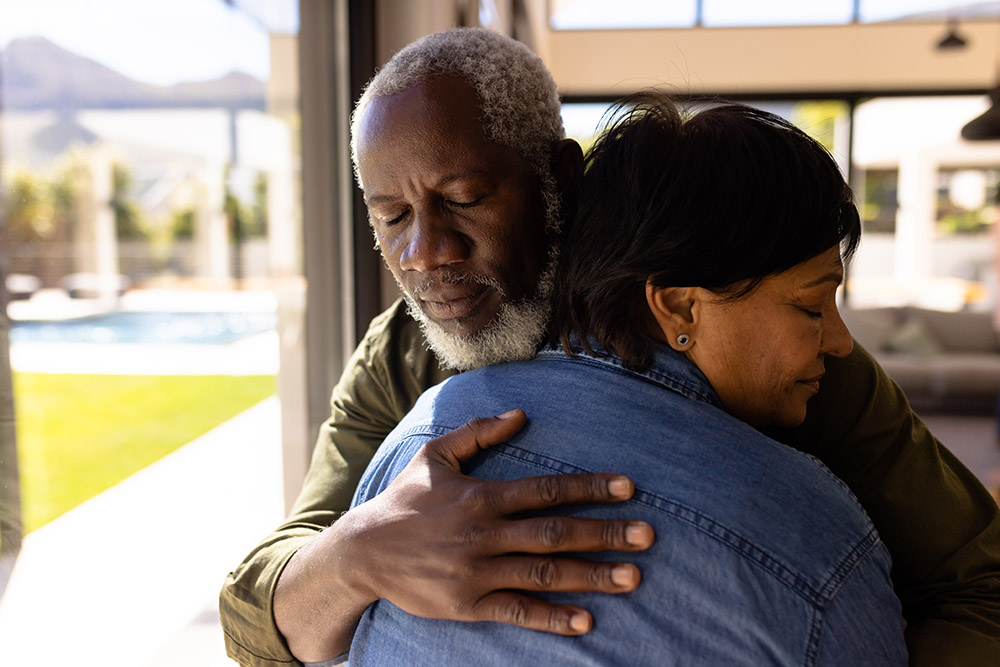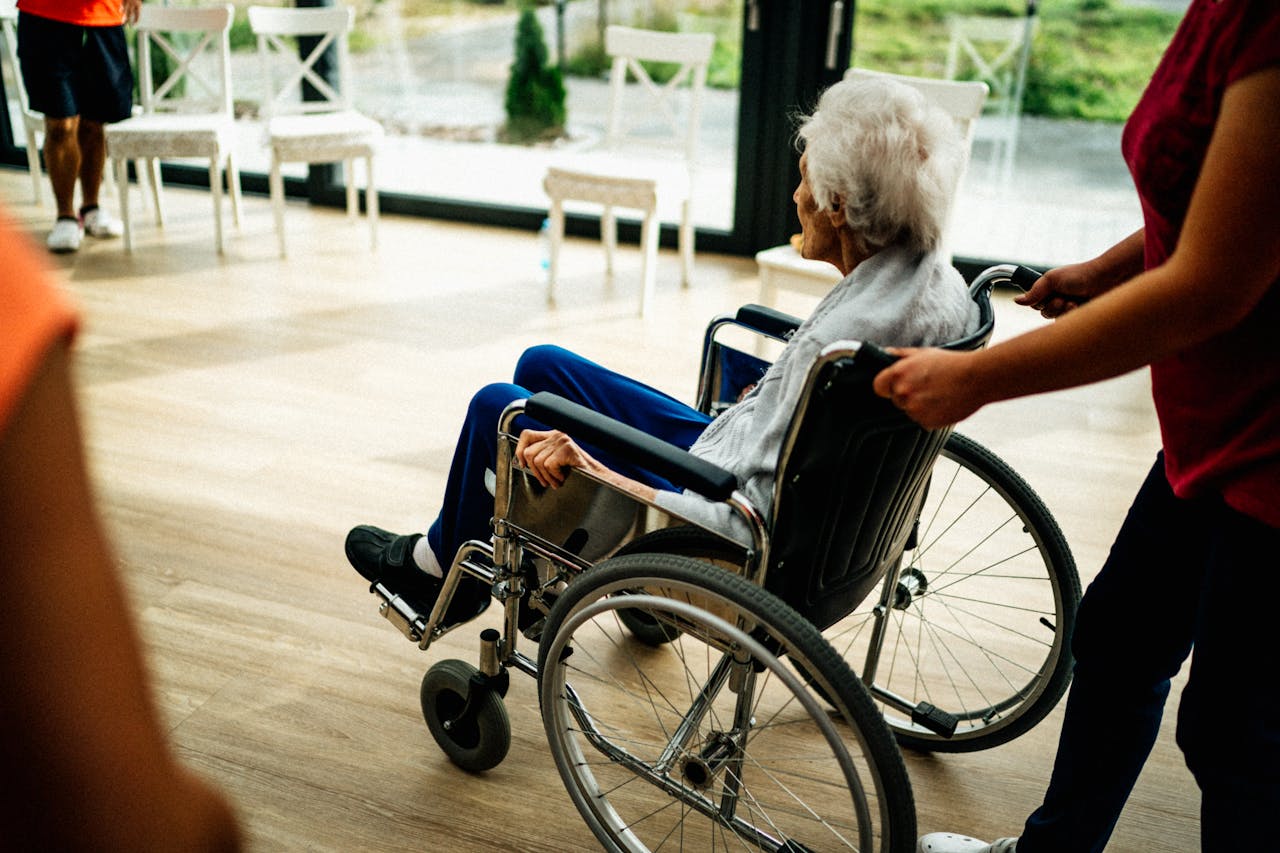Blog
We have successfully represented hundreds of clients in elder abuse, elder neglect, and medical malpractice cases throughout Southern California.

09.06.2025
A Guide To Proving Elder Abuse in California
By Glenna M. Francis
Assessment / Monitoring Issues | Patient Rights

A Guide To Proving Elder Abuse in California
To prove elder abuse in California, you must show that abuse, neglect, or exploitation occurred and identify the abuser. California law (Welfare & Institutions Code §15610.07) recognizes physical, emotional, or financial abuse, neglect, and abandonment as elder abuse. Proof varies by case type. Civil claims require a preponderance of the evidence or clear and convincing evidence, while criminal cases require proof beyond a reasonable doubt.
Strong evidence includes:
- Medical records and photos documenting injuries or neglect.
- Witness statements from family, staff, or other residents.
- Financial documents showing exploitation or misuse of assets.
- Facility records and inspection reports.
- Expert testimony from medical or financial specialists.
Reporting: In emergencies, call 911. Otherwise, contact Adult Protective Services. If the abuse occurred in a facility, contact the California Department of Public Health (for healthcare facilities) or the California Department of Social Services (for residential care facilities for the elderly). Mandatory reporters (like healthcare workers) must report suspected abuse. Prompt reporting preserves evidence and protects the victim from retaliation.
Legal help: An elder abuse attorney can secure restraining orders, protect evidence, and pursue compensation for medical costs, relocation, pain and suffering, and punitive damages.[1]
While elder abuse may not make the headlines every day, it’s unfortunately common. According to the World Health Organization, one in six people over the age of 60 experienced some form of elder abuse in 2024. In California alone, more than 200,000 cases are reported each year.
What’s even worse is that there are likely many more cases that go unreported, either due to a lack of awareness or because victims and/or reporters fear they don’t have enough proof to start a substantial case. As such, one of the best ways to address elder abuse in California is to understand the reporting process, what is considered proof, and what California courts need as evidence to handle cases of elder abuse.
To understand if your case is considered elder abuse, we must first look to California Law. According to California Welfare and Institutions Code 15610.07, elder abuse is any physical abuse, neglect, isolation, abandonment, abduction, or other action that could cause mental or physical pain to an older or dependent adult. This code also applies in circumstances when perpetrators will deprive victims of medical care, goods, and services that could cause harm, which also includes financial abuse.
California considers elder abuse cases in all kinds of settings, including:
- The victim’s or perpetrator’s home
- Public places
- Assisted living facilities
- Nursing homes
Ultimately, if you can prove elder abuse in these settings, perpetrators may receive criminal charges, or may be ordered to pay civil penalties and compensation for damages. In cases that involve neglect in a nursing home, or neglect in an assisted living facility, the facility itself will face a civil lawsuit.
What Is Elder Abuse in California
To understand if your case is considered elder abuse, we must first look to California Law. According to California Welfare and Institutions Code 15610.07, elder abuse is any physical abuse, neglect, isolation, abandonment, abduction, or other action that could cause mental or physical pain to an older or dependent adult. This code also applies in circumstances when perpetrators will deprive victims of medical care, goods, and services that could cause harm, which also includes financial abuse.
California considers elder abuse cases in all kinds of settings, including:
- The victim’s or perpetrator’s home
- Public places
- Assisted living facilities
- Nursing homes
Ultimately, if you can prove elder abuse in these settings, perpetrators may receive criminal charges, or may be ordered to pay civil penalties and compensation for damages. In cases that involve neglect in a nursing home, or neglect in an assisted living facility, the facility itself will face a civil lawsuit.
Types of Elder Abuse Recognized by California Law
Another reason why people may hesitate to report elder abuse is that they may be uncertain about whether the action they’re witnessing is technically considered abuse under California Law. In short, any of the following types of abuse can result in criminal or civil liability:
- Physical Abuse: Physical abuse includes assault, battery, and the use of unreasonable restraints, such as hitting, pushing, or unnecessary sedation.
- Emotional or Psychological Abuse: This occurs when an elder experiences threats, harassment, intimidation, or humiliation that cause mental suffering. Isolating the elder from loved ones or using degrading language are common examples recognized under California law.
- Financial Abuse: Financial abuse involves stealing or misusing an elder’s money, property, or assets, including coercing will changes or misusing powers of attorney.
- Neglect: Neglect is the failure to provide adequate food, shelter, medical care, or hygiene. In facilities, it often stems from understaffing, lack of training, or poor managerial oversight, but it can also be intentional.
- Abandonment: Abandonment occurs when someone responsible for an elder’s care deserts them without support. This can happen at home or when a facility discharges a resident without arranging proper ongoing care.
If you see signs of abuse like the types mentioned above, it’s essential to start looking for proof.

Legal Standards and Burden of Proof
In California, the proof you and an elder abuse attorney must gather for a successful case depends upon the type of claim.
The difference between these standards can affect the strategy for building a case. Civil cases often rely heavily upon witness statements, facility records, expert testimony, photographs, medical reports, or video surveillance. Timelines and thorough documentation are critical. Delays in reporting can weaken a case by allowing physical injuries to heal, witnesses’ memories to fade, and essential records to be altered or lost. Acting quickly as soon as you come across proof can help you preserve evidence and increase the chances of protecting or compensating the victim.
Strong Evidence in Elder Abuse Cases
Even if you have a strong gut feeling that elder abuse is happening behind closed doors, you won’t have a case unless you have proof. The following types of documentation and testimony can be compelling when presented in a California court:
- Medical documentation: Physician reports, hospital records, and photographs of injuries can provide objective proof of harm. These documents help establish the nature, cause, and timing of injuries, which is essential in both civil and criminal cases.
- Witness statements: Testimony from staff members, family members, or other residents can corroborate the victim’s account. Statements are most effective when they include specific dates, times, and descriptions of the incident.
- Facility records: Incident reports, care logs, and regulatory citations can expose systemic problems or prior complaints. In nursing home cases, inspection records from the California Department of Public Health or the California Department of Social Services can add further weight to a claim.
- Expert testimony: Medical professionals and elder care specialists can interpret complex records for the court. Their opinions can link evidence directly to the harm suffered and help establish negligence or intent.
As soon as you’re suspicious that elder abuse is happening, start the reporting and proof collection process immediately.

How To File a Report of Elder Abuse in California
California law encourages anyone who suspects elder abuse to come forward, but certain individuals have a legal duty to report it, such as healthcare workers, social workers, and law enforcement. As a family member or a friend of the victim, you should report the abuse as soon as possible.
For abuse or neglect that occurs in nursing homes, you should contact the California Department of Public Health (CDPH). For abuse that occurs in assisted living facilities, you should contact the Califonria Department of Social Services. You can file a complaint online, by phone, or in writing with the district office that oversees the facility where the neglect is occurring. Investigators will review the complaint, conduct unannounced inspections, interview staff and residents, and review facility records. If they confirm violations, they will issue citations, impose fines, or require corrective action plans. Filing a complaint not only addresses the individual incident, it can also help uncover systemic issues within the facility, protecting other residents from future harm.
How To Prevent Retaliation and Protect the Victim
Retaliation is a genuine concern in elder abuse cases, especially when the alleged abuser is a caregiver, facility staff member, or family member with power over the victim. However, there are protections that you can utilize if you are worried about retaliation against you or the victim.
Employees of healthcare facilities, nursing homes, and assisted living centers are protected from job loss, demotion, or harassment if they report suspected abuse. Similarly, family members, friends, or other witnesses who file complaints cannot be legally threatened or punished for doing so. If retaliation occurs, contact an elder abuse attorney, as they’ll include this as evidence against the perpetrator and help find you resources to protect you against further retaliation.
When to Contact an Elder Abuse Attorney
At various stages when filing a report and collecting evidence for an elder abuse case, it is imperative to contact an elder abuse attorney. Even contacting them once you have suspicions can make or break an elder abuse case. For one, they can help you keep ahead of the statute of limitations, or send letters to facilities or individuals to prevent the destruction of evidence.
If you’re looking for an attorney who will help your loved one receive compensation for the abuse they experienced, look no further than Justice for Our Patients. Our team of attorneys have decades of experience litigating elder abuse claims, resulting in over $44 million in compensation for our victims and their families.
If you suspect a loved one is being mistreated, don’t wait for the situation to escalate. We can help you protect your loved ones and gain the justice they deserve. Contact us today for a confidential consultation and take the first step toward ending the abuse.
FAQs About Proving Elder Abuse Under California Law
How Long Do I Have to File an Elder Abuse Claim in California?
The statute of limitations for elder abuse cases in California depends upon several factors, including the capacity of the victim, whether healthcare negligence is involved, and whether any potential defendant is a government entity. It is important to contact an elder abuse attorney as soon as you suspect neglect or abuse to establish a proper statute of limitations deadline.
What if the Victim Cannot Testify Due to Health Issues?
If a victim is unable to testify because of physical or mental health limitations, other forms of evidence will be presented, such as medical records, photographs, sworn statements, and testimony from witnesses or caregivers.
Can I Sue a Nursing Home For Neglect?
Yes. California law allows families to sue nursing homes for neglect if they fail to provide adequate care, leading to injury or harm. Evidence such as care logs, incident reports, and state inspection findings can be critical in proving negligence. An elder abuse attorney can also help you to obtain additional records to strengthen your claim.
Who Do I Contact First If I Suspect Elder Abuse?
If you believe an elderly person is in immediate danger, contact law enforcement right away. In non-emergency situations, you can report the suspected abuse to the California Department of Public Health if the abuse occurs in a nursing home, or the California Department of Social Services is the abuse occurs in an assisted living facility. Consulting with an elder abuse attorney early on can help you determine the right steps and preserve crucial evidence.
CATEGORIES
- Assessment / Monitoring Issues
- Barstow
- Call Light Issues
- Dementia Care
- Falls with Injuries
- General Neglect
- Incontinence / Toileting
- Los Angeles Elder Care Facilities
- Medication Issues
- Orange County Elder Care Facilities
- Patient Rights
- San Bernardino Board & Care
- San Bernardino Elder Care Facilities
- San Bernardino Nursing Homes
- Staffing / Training Issues
- Golden Inspiration

